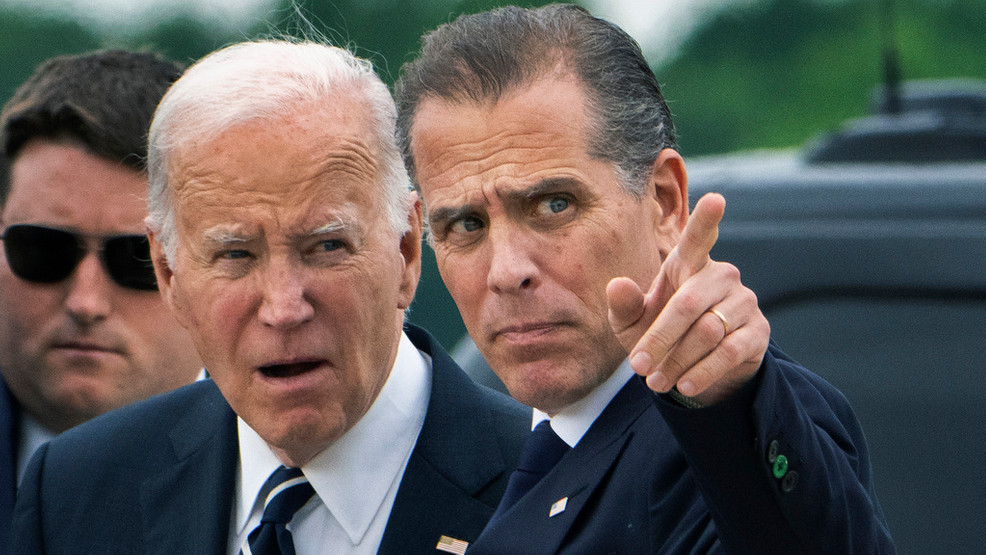WASHINGTON (TND) — Over the past month, Americans have witnessed felony convictions in two historically unprecedented and politically sensitive cases involving the last two presidents and candidates in the November election, further highlighting the role the justice system will play in the 2024 election.
President Joe Biden's son, Hunter Biden, was convicted by a Delaware jury on Tuesday of three felony firearms charges, the first time a presidential son has been convicted of a crime. Former President Donald Trump was also convicted of 34 felony counts of falsifying business records, marking the first ever conviction of a president or former president.
The limited polls released since Trump's conviction in Manhattan have shown a slight drop in his approval rating, but the unprecedented incident has not significantly changed the race. Some polls have shown a slight increase in support for Biden from Trump after the conviction, but the race is still within the margin of error and likely to be decided closely.
Surveys conducted before the 2020 election suggested President Trump had sought to make Hunter Biden's case a central issue in then-candidate Joe Biden's campaign, but more recent data suggests voters are separating the president's legal issues from those of his son.
With just five months until Election Day, a rematch of the 2020 election between two well-established and highly publicized figures, little has changed in the head-to-head polls: Both Trump and Biden are deeply unpopular among voters who are pretty much decided on who they support.
While Trump's conviction provided a modest momentum, such a high-profile political showdown seems unlikely for Hunter Biden, who is scheduled to go to trial in September facing nine charges from federal prosecutors for failing to pay about $1.4 million in taxes between 2016 and 2019, also in a case unrelated to the president.
“In an election where the candidates are not defined because the candidates are already set, all you can do is mobilize voters. There's no persuasion anymore,” said Alison Dagnes, a political science professor at Shippensburg University.
There were mixed reactions from Republicans who have sought to use Hunter Biden, his legal troubles and overseas business dealings to undermine the president and his reelection campaign. Some downplayed the conviction, while others said it was just the beginning of accountability for members of the so-called “Biden crime family,” which is the subject of multiple Republican-led investigations in the House of Representatives.
The Trump campaign has called Hunter Biden's conviction an “obstruction” and accused Biden of committing unspecified crimes.
“This trial is nothing more than a distraction from the real crimes of the Biden crime family, who extorted tens of millions of dollars from China, Russia and Ukraine,” said Caroline Leavitt, national spokesperson for the Trump campaign. “Criminal Joe Biden's control of the Biden family criminal empire will come to an end on November 5th. Biden will never again sell access to government for personal gain.”
Neither of the House investigations has found any concrete evidence that the president committed wrongdoing in his son's case, raising concerns from some Republican lawmakers about the ongoing impeachment inquiry.
Trump and other Republicans may step up their attacks on Hunter Biden as the campaign continues, especially in the upcoming debates, but that runs the risk of giving the president an opportunity to appear as an empathetic leader to people who have loved ones addicted to drugs or alcohol — a strategy Trump tried in the 2020 debates that appeared to backfire as Biden voiced support for his son and empathized with the millions of Americans battling addiction.
“I think Trump will want to bring it up and in debate prep he'll say, 'Stop doing that,'” Dagnes said. “Making fun of alcoholics and drug addicts is not going to get you any support. Absolutely not.”

